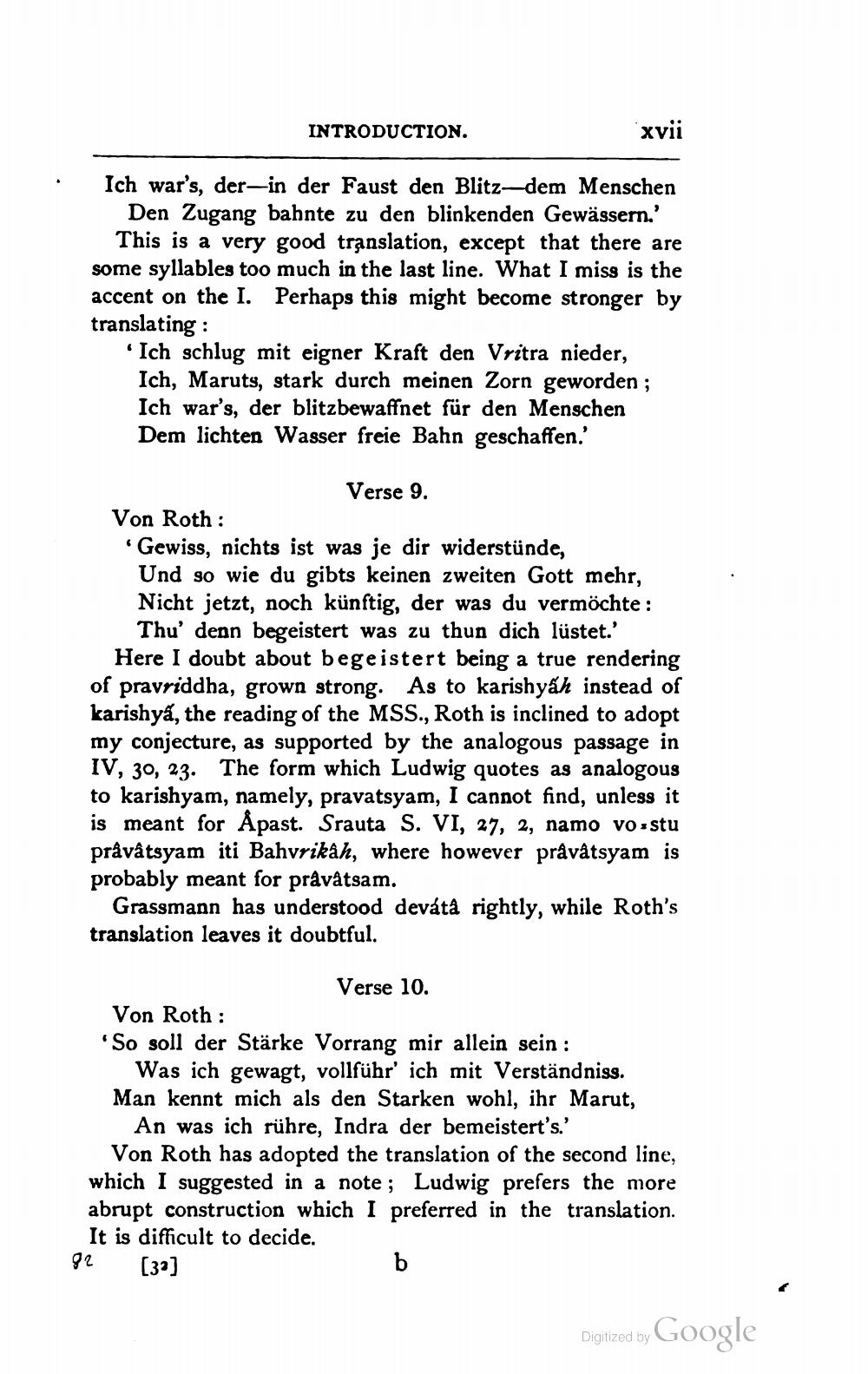________________
INTRODUCTION.
Ich war's, der-in der Faust den Blitz-dem Menschen Den Zugang bahnte zu den blinkenden Gewässern.' This is a very good translation, except that there are some syllables too much in the last line. What I miss is the accent on the I. Perhaps this might become stronger by translating :
'Ich schlug mit eigner Kraft den Vritra nieder, Ich, Maruts, stark durch meinen Zorn geworden; Ich war's, der blitzbewaffnet für den Menschen Dem lichten Wasser freie Bahn geschaffen.'
Verse 9.
Von Roth: 'Gewiss, nichts ist was je dir widerstünde,
Und so wie du gibts keinen zweiten Gott mehr, Nicht jetzt, noch künftig, der was du vermöchte : Thu' denn begeistert was zu thun dich lüstet.' Here I doubt about begeistert being a true rendering of pravriddha, grown strong. As to karishyah instead of karishya, the reading of the MSS., Roth is inclined to adopt my conjecture, as supported by the analogous passage in IV, 30, 23. The form which Ludwig quotes as analogous to karishyam, namely, pravatsyam, I cannot find, unless it is meant for Åpast. Srauta S. VI, 27, 2, namo vo stu prâvâtsyam iti Bahvrikâh, where however prâvâtsyam is probably meant for prâvâtsam.
xvii
Grassmann has understood devátâ rightly, while Roth's translation leaves it doubtful.
Verse 10.
Von Roth:
'So soll der Stärke Vorrang mir allein sein:
Was ich gewagt, vollführ' ich mit Verständniss. Man kennt mich als den Starken wohl, ihr Marut, An was ich rühre, Indra der bemeistert's.'
Von Roth has adopted the translation of the second line, which I suggested in a note; Ludwig prefers the more abrupt construction which I preferred in the translation. It is difficult to decide.
82
[32]
b
Digitized by Google




